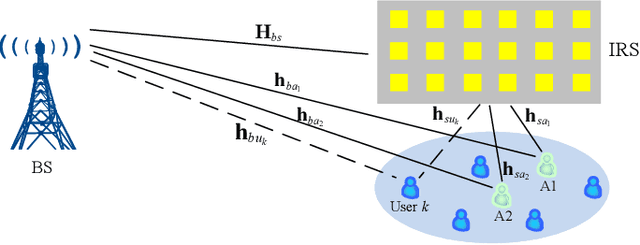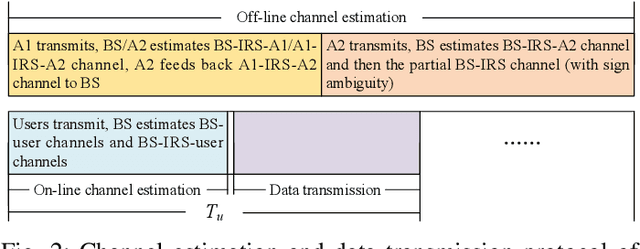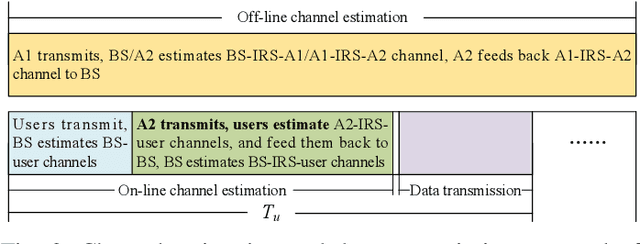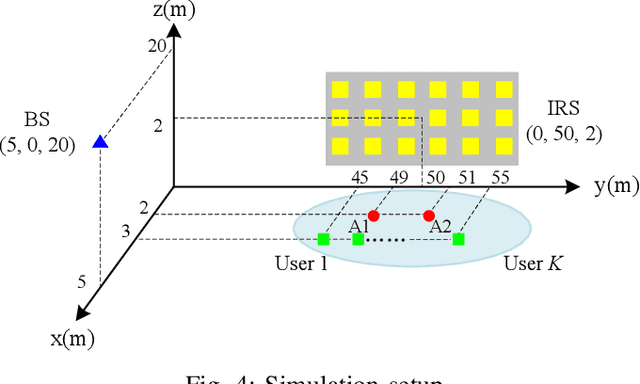Anchor-Assisted Channel Estimation for Intelligent Reflecting Surface Aided Multiuser Communication
Paper and Code
Feb 23, 2021



Channel estimation is a practical challenge for intelligent reflecting surface (IRS) aided wireless communication. As the number of IRS reflecting elements or IRS-aided users increases, the channel training overhead becomes excessively high, which results in long delay and low throughput in data transmission. To tackle this challenge, we propose in this paper a new anchor-assisted channel estimation approach, where two anchor nodes, namely A1 and A2, are deployed near the IRS for facilitating its aided base station (BS) in acquiring the cascaded BS-IRS-user channels required for data transmission. Specifically, in the first scheme, the partial channel state information (CSI) on the element-wise channel gain square of the common BS-IRS link for all users is first obtained at the BS via the anchor-assisted training and feedback. Then, by leveraging such partial CSI, the cascaded BS-IRS-user channels are efficiently resolved at the BS with additional training by the users. While in the second scheme, the BS-IRS-A1 and A1-IRS-A2 channels are first estimated via the training by A1. Then, with additional training by A2, all users estimate their individual cascaded A2-IRS-user channels simultaneously. Based on the CSI fed back from A2 and all users, the BS resolves the cascaded BS-IRS-user channels efficiently. In both schemes, the quasi-static channels among the fixed BS, IRS, and two anchors are estimated off-line only, which greatly reduces the real-time training overhead. Simulation results demonstrate that our proposed anchor-assisted channel estimation schemes achieve superior performance as compared to existing IRS channel estimation schemes, under various practical setups. In addition, the first proposed scheme outperforms the second one when the number of antennas at the BS is sufficiently large, and vice versa.
 Add to Chrome
Add to Chrome Add to Firefox
Add to Firefox Add to Edge
Add to Edge